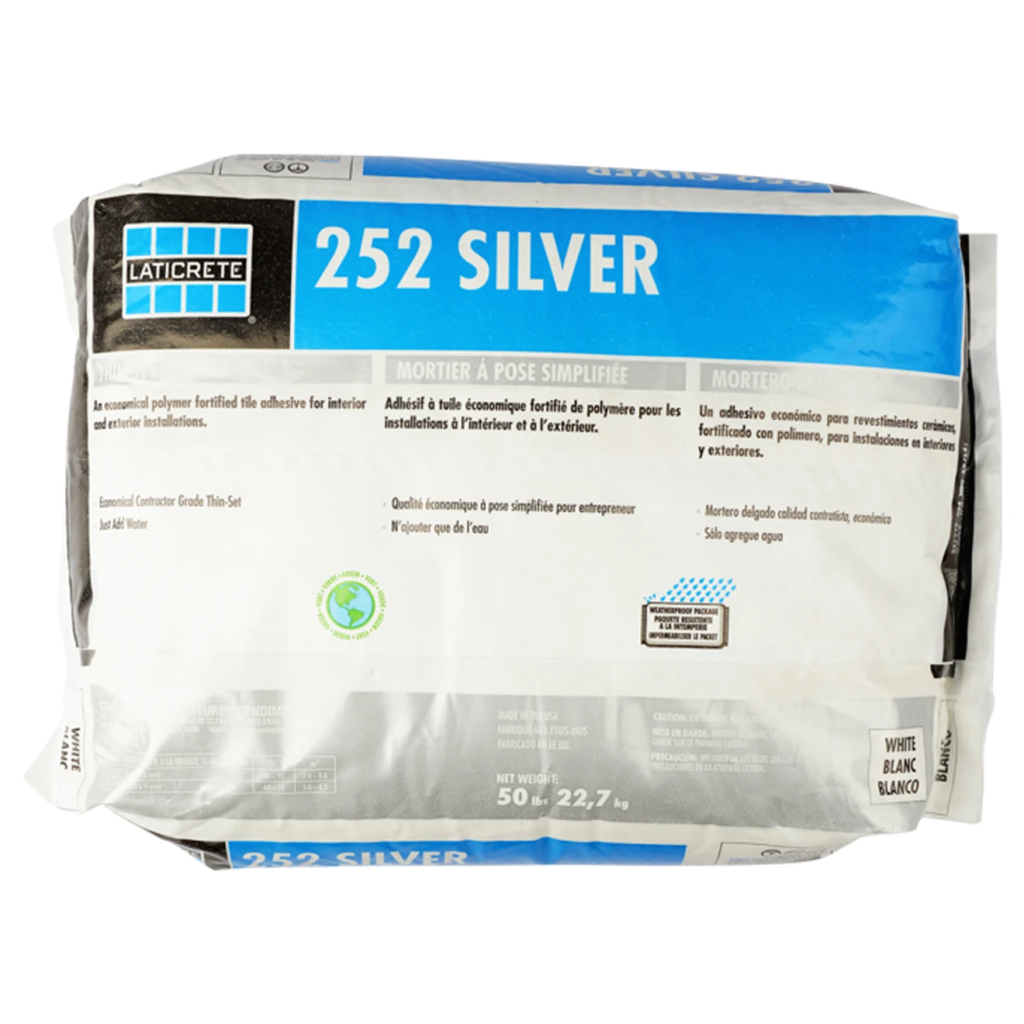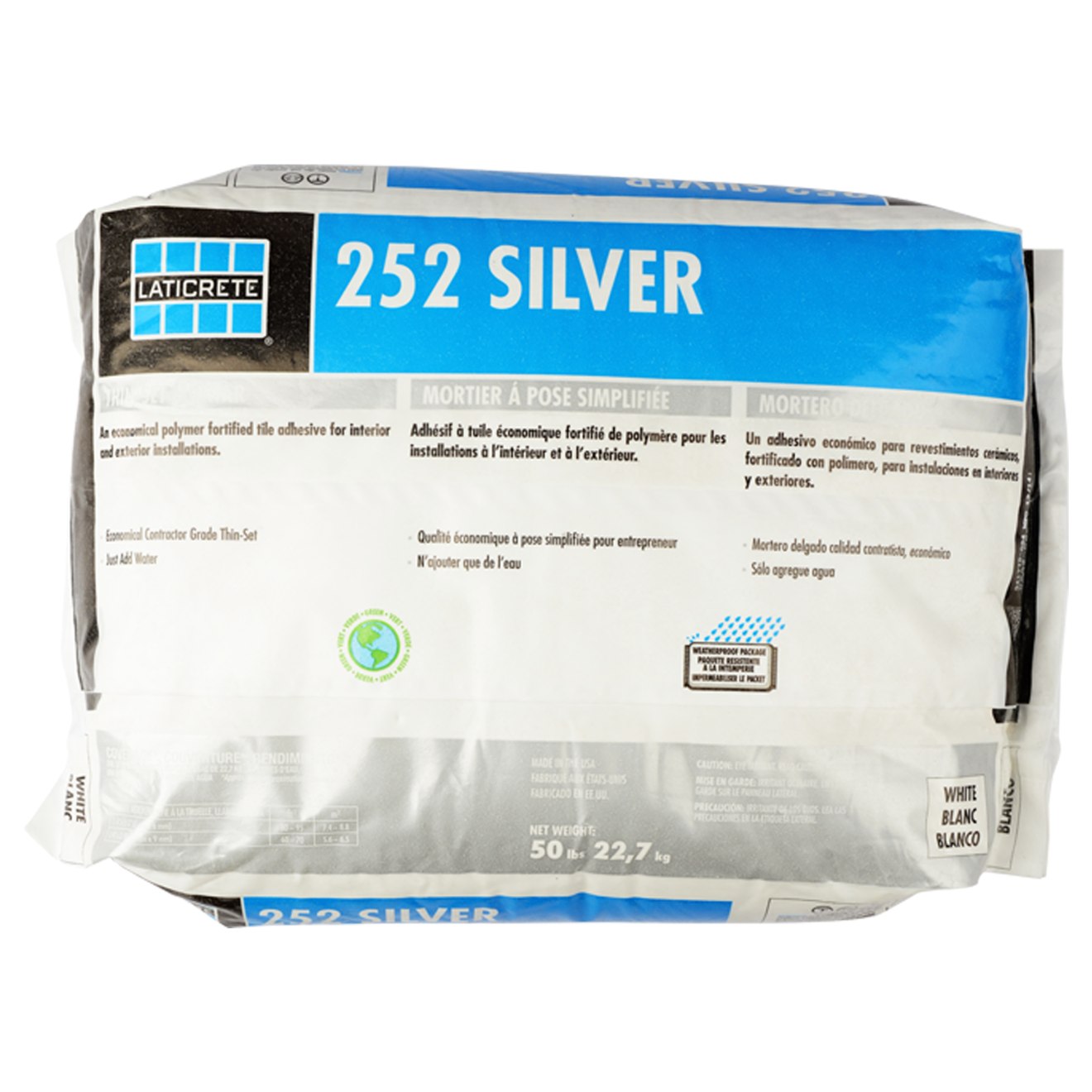
No, grout should not be used as mortar. These substances are formulated for different purposes.
Grout and mortar may resemble each other in consistency and appearance, but these construction compounds serve distinct roles in building and repairs. Mortar is designed with specific bonding properties for laying bricks and blocks to create a stable structure. Its composition gives it the strength to hold these elements together under various loads and stresses.
On the other hand, grout is used primarily for filling voids and sealing joints, such as those between tiles. While it aids in securing tiles to a substrate, it lacks the structural integrity required for building applications that mortar provides. Understanding these differences is crucial for any construction or DIY project to ensure durability and safety. Using each material for its intended purpose will result in the best outcome for your project.
Distinguishing Grout From Mortar
Understanding the differences between grout and mortar is crucial for any construction project. Although they might seem similar, they serve unique purposes and are composed of different materials. Knowing when to use grout and when to use mortar is essential for the durability and stability of your project.
Composition Differences
Grout and mortar have distinct compositions that cater to their specific functions. Below is a comparison of their main components, which highlights the primary differences:
| Material | Grout | Mortar |
|---|---|---|
| Cement | Yes | Yes |
| Sand | Finer particles | Coarser particles |
| Water | Higher ratio | Lower ratio |
| Additives | For workability | For bonding |
Intended Usage And Applications
Grout and mortar have distinct roles in building and tiling. Grout is used to fill spaces, such as the gaps between tiles. Mortar, on the other hand, is used to bond building materials together, like bricks or stones. Let’s delve deeper into their specific applications:
- Grout: Filling tile joints, sealing, and reinforcement.
- Mortar: Laying bricks, stones, and other masonry units.
Grout’s Purpose In Tiling
Grout plays a critical role in tiling. It solidifies spaces between tiles. This makes surfaces look great and stay strong. Grout keeps tiles in place, too. It also stops water and dirt from getting under the tiles.
Filling Joins And Spaces
Grout is a filler for the gaps between tiles. Without grout, tiles could shift, crack, or lift. Grout protects against moisture and debris. It forms a tight barrier. This barrier helps keep tiles aligned. It makes cleaning easy, too.
Types Of Grout For Tiling Projects
- Sanded Grout – Best for larger gaps. The sand adds strength.
- Unsanded Grout – Works well for smaller spaces. It’s smoother.
- Epoxy Grout – Great for resisting stains. It’s durable.
Different projects need different grouts. Choose the right type for your tiles. This ensures a lasting finish and ease of maintenance.
Mortar’s Role In Construction
Mortar is essential in construction. It acts like a glue. It holds bricks, blocks, and stones together. Mortar must be strong and durable. It must withstand weather and bear loads. Without mortar, buildings would be weak. They would not stand tall for long.
Binding Building Materials
Mortar binds materials to give shape to structures. Bricks and stones rely on mortar. Good mortar means strong walls. It fills gaps and makes walls straight and even. This stops water from getting inside the walls. Mortar keeps air out too. A well-built wall can last for years.
Varieties Of Mortar
There are different types of mortar. Each type has a special use. Some are strong and dry quick. Others can resist water. Here is a list of common types:
- Type N: General use. Good for above ground work.
- Type S: Strong. Withstands soil pressure and weather.
- Type M: Very strong. Used for stone walls and at below ground level.
- Type O: For non-load bearing walls. Not too strong.
- Type K: Soft. Old buildings with softer bricks use this.
Each mortar type has special ingredients. They match different building needs. Checking the mortar type is key. The wrong type can cause problems.
Can Grout Replace Mortar?
Often, DIY enthusiasts and homeowners ask, “Can grout serve as a substitute for mortar?” The roles of grout and mortar in construction are unique. This section delves into why substituting one for the other might not be a good idea. Let’s explore the differences and understand the best uses for each material.
Adhesion And Strength Considerations
Grout and mortar have different compositions. Grout fills gaps between tiles and provides a smooth finish. On the other hand, mortar serves to bond bricks and stones. Examining their bonding capabilities and strengths sheds light on their interchangeability.
- Mortar: Higher strength for structural bonding.
- Grout: Lower adhesive properties, not for structural support.
Mortar’s ingredients include cement, lime, and sand, which offer strong adhesion. Grout lacks the strength to hold structural elements together effectively.
Potential Consequences Of Misuse
Substituting grout for mortar can lead to structural failures and safety risks. Below are potential outcomes when grout replaces mortar:
| Issue | Consequence |
|---|---|
| Weak Bonding | Structures may crumble due to inadequate strength. |
| Cracking | Grout may crack under pressure, compromising stability. |
| Moisture Problems | Improper seals may lead to water damage and mold growth. |
Proper material selection is crucial for the longevity and safety of a structure.
Expert Recommendations
Grout and mortar may look similar, but they serve different purposes. Before you start your next home improvement project, let’s explore expert advice on whether you can use grout as a substitute for mortar.
Choosing The Right Product For The Job
Selecting the appropriate material is crucial for the durability and success of your installation. Grout and mortar are not interchangeable. Here’s what you need to consider:
- Composition: Mortar contains lime, cement, and sand; grout includes water-retentive additives.
- Strength: Mortar provides a strong bond between bricks and stones; grout fills voids.
- Flexibility: Mortar can withstand structural movement; grout is less tolerant.
Advice From Industry Professionals
Industry professionals emphasize using the right product for masonry works. The table below summarizes their advice:
| Aspect | Mortar | Grout |
|---|---|---|
| Bonding | Strong bond for structural support | Poor substitution for mortar |
| Usage | Recommended for building walls | Recommended for filling gaps |
| Professional Suggestion | Use for intended applications | Do not use as a mortar replacement |
Conclusion: Always choose mortar for structural jobs and grout for filling tile joints.

Credit: www.bedrosians.com
Common Misconceptions Debunked
When tackling tiles and bricks, the materials used are crucial. Grout and mortar seem similar, but serve different purposes. Many people misinterpret their uses. Below are truths to shed light on this mix-up.
Myths About Interchangeability
Grout and mortar are not the same. This fact dispels a major myth. Their distinct composition gives each unique properties. Here’s why one can’t simply replace the other:
- Grout is thinner, designed to fill gaps between tiles.
- Mortar is thicker and used to bind bricks or stones.
- Grout contains more water, making it less suitable as an adhesive.
- Mortar has a cement base critical for structural support.
Real-life Examples And Case Studies
Examples illustrate the consequences of mixing up these materials. Explore case studies to understand the importance of using the right one.
| Project | Correct Material | Outcome If Misused |
|---|---|---|
| Tile Installation | Grout | Loose tiles and gaps |
| Brick Wall | Mortar | Weak structure and potential collapse |
For instance, a DIY enthusiast used grout for bricklaying. The result was an unstable wall. Only with the correct mortar did the wall gain stability.
Another case involved a renovated bathroom. The contractor mistakenly applied mortar between tiles. Cracking and difficulty in cleaning were the outcomes.
Best Practices For Tiling And Construction
Mastering the art of tiling involves much more than picking the prettiest tiles. It requires understanding materials and methods to ensure your work lasts for years. A common question arises: Can grout be used as mortar? Grout and mortar may look similar, but they serve different purposes. Let’s explore the best ways to use these materials properly to guarantee the success of your construction or tiling project.
Ensuring Durability And Longevity
To ensure tiles stay in place, it’s essential to use the right bonding agent. Mortar is designed for this job; it’s strong and sticks tiles to floors and walls. Grout fills spaces between tiles but doesn’t have the same sticking power. For durable and long-lasting results, stick to these steps:
- Choose the correct mortar type for your specific tiling project.
- Apply mortar evenly with the right tools for a secure bond.
- Space tiles correctly, leaving room for grout to support and seal tile edges.
- Use grout after the mortar has set to complete the tiling process.
Professional Tips For Diy Enthusiasts
DIY tiling can be rewarding, leading to a beautiful finish. Here are some professional tips to help you achieve the best results:
- Prepare surfaces properly before starting to tile.
- Read the labels on mortar and grout to understand their specific uses.
- Use a notched trowel for mortar application to get an even spread.
- Allow for curing time as recommended by the product manufacturer.
Remember, using grout as mortar is not advisable. Grout lacks the necessary bonding agents to hold tiles in place effectively. By following these professional tips and best practices, your do-it-yourself tiling job can stand the test of time, much like a pro’s work.

Credit: www.lowes.com

Credit: www.lowes.com
Frequently Asked Questions On Can I Use Grout As Mortar
Is Grout A Suitable Substitute For Mortar?
No, grout is not a suitable substitute for mortar. Though both contain cement, grout and mortar have different compositions and purposes. Mortar has a stronger bonding agent for structural building, whereas grout fills and seals joints between tiles.
Can Grout Provide Structural Support Like Mortar?
Grout is not intended for structural support. It lacks the necessary strength and bonding properties that mortar possesses. Mortar is specifically engineered to bond bricks and stones effectively in construction projects.
What Are The Risks Of Using Grout As Mortar?
Using grout as a mortar can lead to structural failure. Without the bonding strength of mortar, the integrity of the construction is compromised. This can result in unstable structures that may crumble or fail over time.
Are There Special Types Of Grout That Act Like Mortar?
There are no special types of grout that can replace mortar entirely. Mortar is uniquely formulated to provide structural support and long-term durability, which is not an inherent quality of any grout product.
Conclusion
In essence, grout and mortar serve different purposes in construction and tiling. Attempting to use grout as a substitute for mortar could jeopardize the integrity of your project. Always opt for the correct material to ensure lasting results and durability.
For your next endeavor, choose wisely and build with confidence.




















